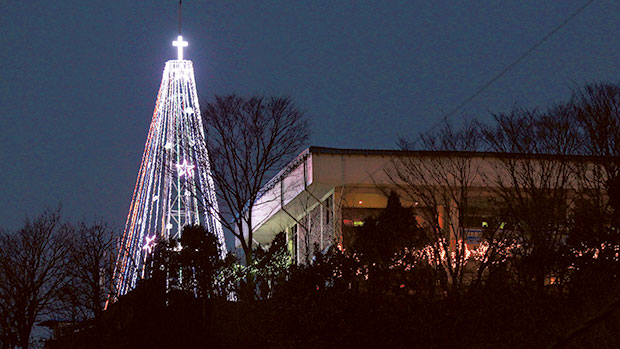
SEOUL: South Korea said Wednesday it had dismantled a Christmas tree-shaped tower near the border with North Korea which had previously been used for a seasonal lights show that drew angry protests from the atheist regime in Pyongyang.
North Korea has repeatedly demanded the destruction of the 60-foot (20-meter) high steel tower on top of a military-controlled hill just three kilometres from the heavily-fortified border.
In the past, it has even threatened to shell the tower which the South has allowed civilian groups to decorate with lights — including a giant illuminated cross at the top — over the Christmas season.
The defence ministry said it was dismantled for the sole reason that the 43-year-old structure had become unsafe.
“The decision was unrelated to inter-Korean relations. Safety was the main reason,” a ministry spokesman told AFP, adding that work to remove the tower had begun back in August.
“There is no plan to replace it with a new one,” he said.
The South switched off the tree under a 2004 deal to halt official-level cross-border propaganda. It also suspended loudspeaker broadcasts and a propaganda leaflet campaign using large helium balloons.
The deal was scrapped in 2010 following the sinking of a South Korean warship which Seoul blamed on a North Korean submarine.
In 2011 the tower was not illuminated in the wake of North Korean leader Kim Jong-il’s death and it stayed dark over Christmas 2013 when military tensions were running high.
The North has always condemned the Christmas lights show as a provocative display of psychological warfare.
The dismantling of the tower comes after an agreement reached during a surprise visit to the South by a top-ranking North Korean delegation earlier this month to resume high-level talks suspended since February.
The remaining irritant for the North is the continued launching of anti-North leaflets over the border by South Korean activists.












